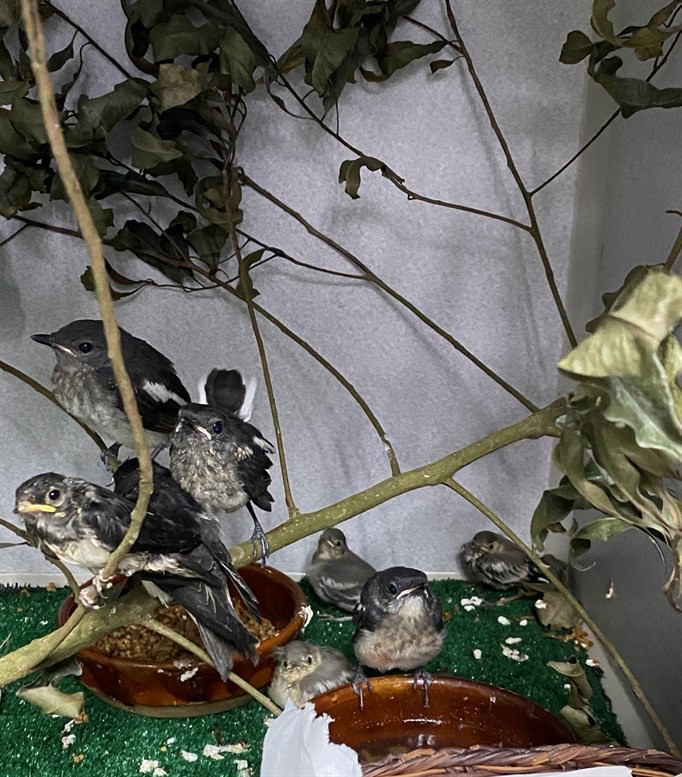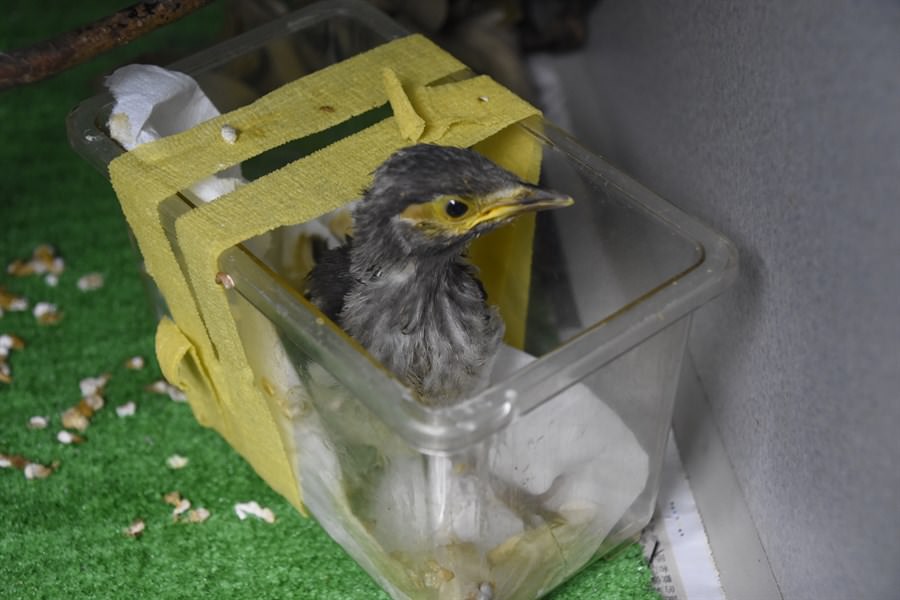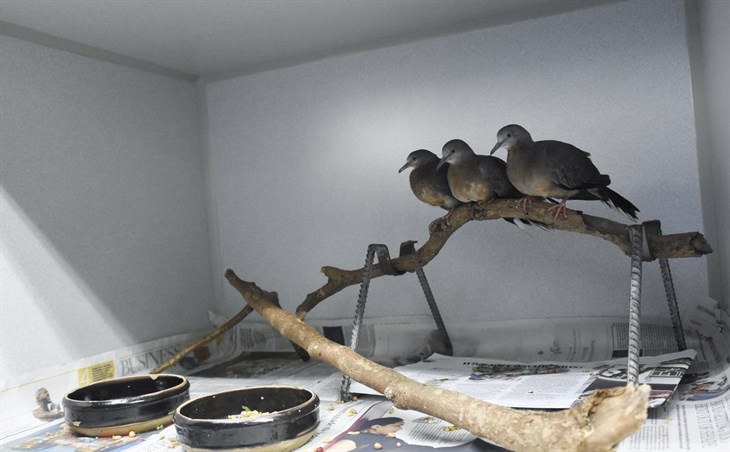Inappropriate assistance may do more harm than good
Everyday nestlings’ feathers will grow and become more dense, eventually the wing feathers are formed and they are ready to learn how to fly. Much like human children learning to walk, they may stumble or even accidentally fall from the tree branch. So sometimes people might find juvenile birds on the ground. When seeing them wandering around helplessly, a good Samaritan may want to pick them up and take care of them. Thus, we often find good intentioned citizens asking what to do with birds they have found, on the internet.
In fact the above situations are normal and most of the time juvenile birds do not need human intervention. If you observe carefully, the parent birds are eagerly calling nearby to guide the young birds. This is a necessary process for its growth. Not only must the young birds learn, but adult birds are also learning how to choose a more suitable place to build a nest. However, if the fledgling is in immediate danger, for instance, a car or domestic cat is approaching very close, you can put them back on the branch or a high place near the pick-up point and let them continue to practice.
Inappropriate assistance may do more harm than good. Please do not attempt to handle or raise baby birds by yourself, as inappropriate care may cause unnecessary suffering and birds might become imprinted and will never be able to return to the wild. Also, it is illegal to keep wild birds in captivity in HK without Government authorization. If the wild bird is injured (bleeding or with obvious injury), please report to the SPCA Inspectorate at 2711 1000 or the AFCD at 1823. KFBG Wild Animal Rescue Centre cares for injured native wildlife in collaboration with the SPCA and AFCD.
Please follow this baby bird flowchart to decide what type of action to take when you spot a baby bird on the ground: What to do if you find a baby bird?
.jpg)
▲ A fledgling is the most mature stage of hatchling. Birds reaching this stage have well developed plumage and maybe able to fly a short distance but the parent would still be caring for them. In this photo, you can see a Oriental Magpie Robin (Copsychus saularis) fledgling and its parent. (Photo Credit: Walter Ma)

▲ Some of the young Oriental Magpie Robins received this year under care at the KFBG Wild Animal Rescue Centre – also in the same picture three young White Wagtails (Motacilla alba) and a Barn Swallow (Hirundo rustica) (Photo Credit: KFBG)

▲ Injured Black-collared Starling (Sturnus nigricollis) fledgling rescued this year under care at the KFBG Wild Animal Rescue Centre (Photo Credit: KFBG)

▲ Young Spotted Doves (Steptopelia chinensis) received this year under care at the KFBG Wild Animal Rescue Centre (Photo Credit: KFBG)


